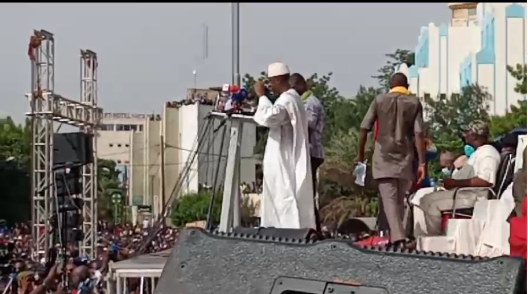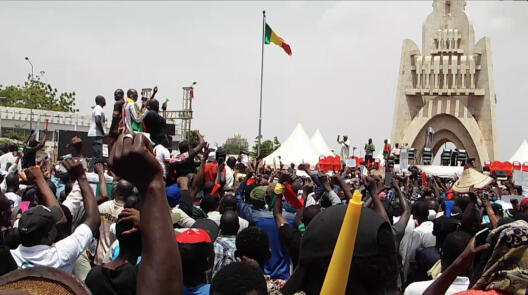New network for African research related to religion
Launch at the Cluster of Excellence with conference on the political influence of Muslim activists in Mali

An international network for African research related to religion at the Cluster of Excellence will start next week with a conference on Islam as a source of political mobilization in Mali. Anthropologist Dorothea Schulz and Souleymane Diallo from the Institute of Anthropology at the University of Münster have invited researchers from Africa, Europe, and the USA to look at the influence of Muslim actors on the legitimization of political rule in Mali. The growing social weight of Muslim activists in Mali since the beginning of the 2000s and the military coups in 2012 and 2020 showed, according to Dorothea Schulz, “that Islam has now advanced to become the third source of political legitimacy – alongside military and political-procedural power”.
The inaugural event in Münster from 4 to 5 February 2021 is entitled “Rifle, Quill, and Rosary: Competing sources and corporate struggles for political legitimacy in Mali”. Taking the title “Religious Pluralism: conceptual, normative, and empirical perspectives”, the new network will expand non-European religious research at the Cluster of Excellence, with international experts in African research related to religion conducting long-term research on religious negotiations in Africa and their entanglements with political and economic processes of transformation in society as a whole.
Religious and (para-)military mobilizations
The conference will focus on Islam as a source of political mobilization and legitimacy, and as a surface on which moral renewal and continuity with traditions can be projected, says Dorothea Schulz. “Our central concern is to start with current developments in Mali and trace the processes in the transnational space of the Sahara and the Sahel that have led to the strengthening of ‘Islam’ as a source of moral renewal and political legitimacy”. These and similar developments in other areas of the Sahel-Sahara region should not simply be read as signs of an ‘Islamic terror’ operating internationally.

Instead, the event serves to reconstruct the national, regional and local dynamics fuelling current religious and (para-)military mobilizations. By bringing together African, European, and North American expertise, the conference, organized by the Cluster of Excellence, aims to foster dialogue on this theme among political scientists and historians, as well as social and cultural anthropologists. Scholars from Mali, France, Italy, Belgium, Denmark, the USA, and Germany will participate. (exc/maz/vvm)

